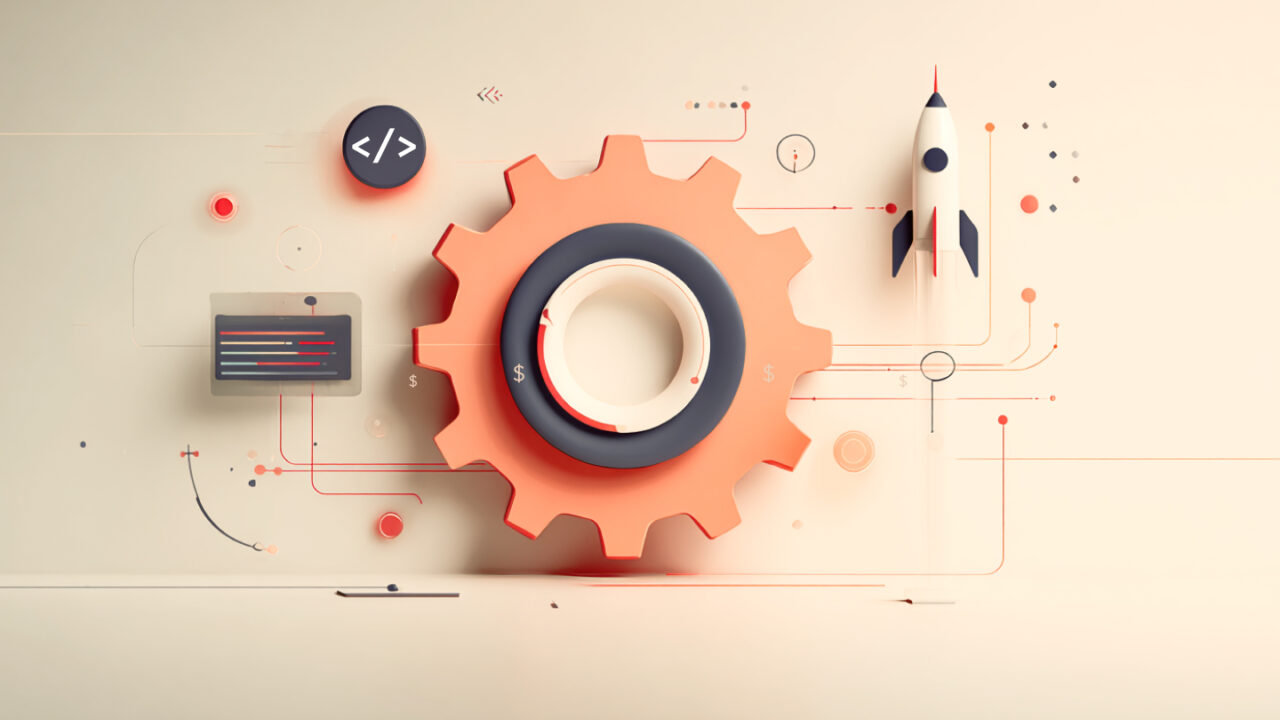Engineer Your Future: AI-Powered Software Development Acceleration
Introduction: The Future is Now
Software development has undergone a revolution. Businesses need quicker delivery, better quality, and more innovation. This puts a lot of pressure on developers. But AI-powered tools are helping them to speed up this process. It allows engineers to work smarter and more efficiently. Instead of replacing developers, AI is enhancing their skills, removing obstacles, and helping companies create new things at incredible speeds.
Why Software Development Needs Acceleration
Today’s technology landscape is fiercely competitive. Businesses demand faster time-to-market, seamless user experiences, and robust digital products. Yet traditional development cycles often struggle with:
- Manual coding and repetitive tasks
- Lengthy debugging and testing phases
- Deployment delays caused by infrastructure complexities
These bottlenecks slow innovation and increase costs. That’s why accelerating software development has become a strategic priority—and AI in software engineering is the catalyst.
The Rise of AI-Powered Development
So, what is AI-powered development? It refers to using artificial intelligence, machine learning in software development, and automation tools to enhance every stage of the software development lifecycle (SDLC).
From tools like GitHub Copilot, ChatGPT coding assistants, and AI-driven DevOps to advanced automated testing frameworks, AI is already embedded in modern engineering practices. Adoption is rising quickly because it delivers what businesses need most: efficiency, accuracy, and scalability.
Key Insights & Stats
1. Adoption & Integration of AI Tools
62% of developers are now using AI tools—up from 44% just one year earlier
30% of Microsoft’s code is now AI-generated, reflecting deep integration of tools like GitHub Copilot and ChatGPT Source
2. Productivity & Efficiency Gains
A study found developers using GitHub Copilot completed tasks 55.8% faster than those without AI assistance Source
Atlassian’s research revealed 68% of developers are saving over 10 hours per week thanks to AI tools Source
3. Industry Penetration & Economic Impact
A survey showed that 87% of video game developers now use AI agents to automate repetitive work and boost creativity. Source
Gartner projects that within three years, 40% of new business software will be built using AI-assisted (or “vibe”) coding techniques Source
4. Market Growth & Forecasts
The AI-augmented software engineering market leaped from $3.18 billion in 2024 to an expected $4.67 billion in 2025, with a CAGR of 46.9%, and is forecast to reach $21.49 billion by 2029. Source
AI in software development market is projected to balloon from $674 million in 2024 to $15.7 billion by 2033, at a CAGR of 42.3% Source
Key Areas Where AI Accelerates Software Development
1. Intelligent Code Generation & Assistance
AI-assisted IDEs like Copilot and Tabnine help developers by offering context-aware code suggestions, auto-completing functions, and generating boilerplate code. This speeds up development, reduces human error, and frees engineers to focus on solving complex problems.
2. Automated Testing & Bug Detection
Testing is often the slowest part of development. AI-powered testing tools can automatically create test cases, detect bugs early, and run regression testing at scale. Predictive error detection ensures fewer defects reach production—leading to faster releases and higher-quality software.
3. AI-Enhanced DevOps & CI/CD
AI in DevOps enables predictive analytics for deployment risks, automated infrastructure provisioning, and real-time monitoring. By streamlining CI/CD pipelines, AI ensures smoother rollouts, reduces downtime, and enhances scalability for large-scale applications.
4. Smarter Project Management
AI isn’t just about code. AI-driven project management tools can forecast delays, predict workload imbalances, and optimize sprint planning. This makes delivery timelines more accurate and improves overall team productivity.
5. Personalized Learning for Developers
AI can recommend best practices, generate documentation on demand, and even suggest relevant tutorials. This continuous learning integration helps developers stay updated, improve their craft, and adapt to rapidly evolving technologies.
Enhancing Collaboration with AI in Agile Teams
AI is transforming the way teams collaborate in agile project management. It significantly enhances collaboration by automating routine tasks, improving decision-making through data-driven insights, and facilitating smarter communication. It does not replace project managers; instead serves as an intelligent assistant that augments human capabilities.
By embedding AI into sprint planning, backlog management, and resource allocation, teams can achieve greater alignment and efficiency. AI tools can forecast potential blockers, optimize workloads across geographically dispersed teams, and recommend the most impactful stories to prioritize.
From offering real-time progress tracking and predictive reporting to empowering cross-functional teams to make faster, data-driven decisions, AI executes all.
And the result?
A smoother, more collaborative agile process, where developers spend less time coordinating and more time creating value.
Business Benefits of AI-Powered Development Acceleration
For organizations, the impact of AI-driven software development is transformational:
- Reduced Time-to-Market – Faster prototyping, testing, and deployment.
- Cost Optimization – Less manual effort, fewer bugs, and better resource utilization.
- Higher Quality Software – AI-powered bug detection improves stability and performance.
- Boosted Innovation – Developers focus on creativity and high-value engineering tasks.
- Scalability – Companies can handle more projects without proportionally expanding teams.
Simply put, AI in software development enhances both speed and quality—helping businesses stay competitive.
Challenges & Considerations
While the benefits are clear, organizations must also address challenges when adopting AI-powered software development:
- Data Privacy & Security – Protecting sensitive data used in AI models.
- Bias in AI Models – Ensuring fairness and accuracy in AI-driven outputs.
- Over-Reliance on AI – Keeping human oversight to avoid blind trust in automation.
- Skill Gaps – Developers must upskill in AI, ML, and automation tools to maximize value.
Addressing these concerns early ensures a smoother transition into AI-accelerated development.
Success Stories:
Morgan Stanley: Using its in-house AI tool DevGen.AI, the bank saved 280,000+ developer hours by automating legacy code translation—boosting productivity without cutting jobs. Source
JPMorgan reports that AI coding tools increased software engineers’ productivity by up to 20%, freeing them to focus on high-value AI and data projects. Source
Future Outlook: AI and the Evolving Role of Engineers
Will AI replace developers? The answer is a resounding no. Instead, AI will augment software engineers—allowing them to focus on innovation, architecture, and strategy rather than repetitive coding.
The future will see AI-powered coding agents, generative AI for UX design, and even autonomous bug-fixing systems. Developers will act as orchestrators, guiding AI tools to achieve business goals. Collaboration between human creativity and machine intelligence will define the next generation of software engineering.
Conclusion: Engineer Your Future Today
AI-powered software development acceleration is no longer a futuristic concept—it’s a competitive necessity. By adopting AI in coding, testing, DevOps, and project management, businesses can achieve faster delivery, higher quality, and lower costs.
The future of engineering isn’t about replacing developers but empowering them to build smarter, faster, and more innovative solutions. Organizations that embrace this shift will engineer not just better software—but a better future.
Are you ready to engineer your future with AI-powered development?
Contact Us
FAQs
Q.1. How does AI accelerate the software development lifecycle (SDLC)?
Ans. AI speeds up the SDLC by automating coding, testing, deployment, and monitoring, reducing errors and shortening release cycles.
Q.2. What are the benefits of AI-powered software development?
Ans. Key benefits include faster time-to-market, reduced costs, higher-quality software, and the ability to scale projects without increasing team size.
Q. 3. Can AI replace software developers?
Ans. No, AI won’t replace developers. Instead, it augments their work by automating repetitive tasks and enabling them to focus on innovation and strategy.
Q.4. Which areas of software development benefit the most from AI?
Ans. AI is most impactful in intelligent code generation, automated testing, DevOps optimization, project management, and personalized developer learning.
Q.5. What challenges should businesses consider before adopting AI in SDLC?
Ans. Challenges include data privacy risks, bias in AI models, potential over-reliance on automation, and the need for developers to upskill in AI and ML.











